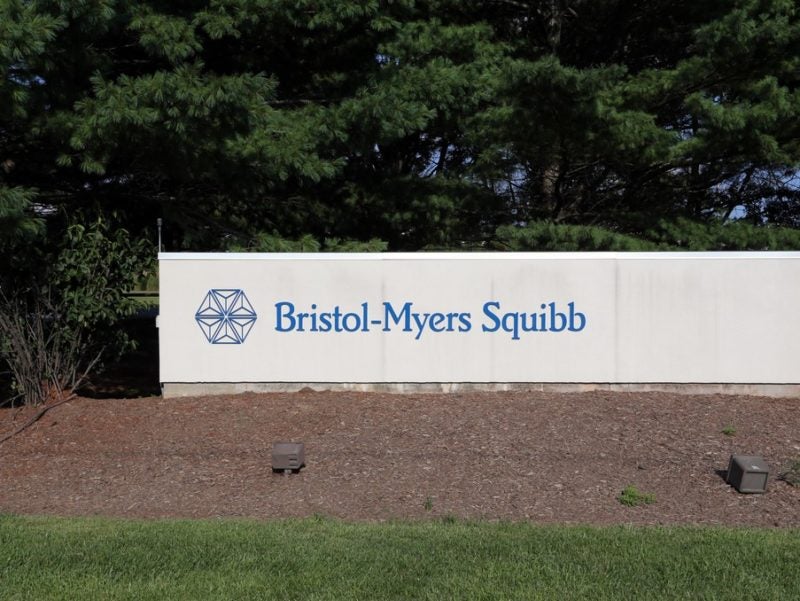
BMS acquires Celgene for an equity value of $74bn
Bristol-Myers Squibb (BMS) has entered into a definitive merger agreement to acquire Celgene via a cash and stock transaction with an equity value of $74bn; Celgene shares have been valued at $102.43 per share.
The boards of directors of both companies have approved the deal.

Discover B2B Marketing That Performs
Combine business intelligence and editorial excellence to reach engaged professionals across 36 leading media platforms.
According to the agreement, Celgene shareholders will receive one BMS share, the closing price of BMS stock was $52.43 on 2 January this year, and $50 in cash per share.
Sanofi, Lilly and Novo face enquiry over high insulin prices in US
Drug giants Sanofi, Eli Lilly and Novo Nordisk have been sent letters by US lawmakers requesting information on the increased costs of insulin in recent years and the companies’ profit from sales of these products.
The letters were sent by Energy and Commerce Committee Chairman Frank Pallone and Oversight and Investigations Subcommittee Chair Diana DeGette.
Since these companies are the leading insulin manufacturers in the US, the Democrat lawmakers requested each of them to provide documents and answers to certain questions by 13 February this year.

US Tariffs are shifting - will you react or anticipate?
Don’t let policy changes catch you off guard. Stay proactive with real-time data and expert analysis.
By GlobalDataTakeda completes $62bn Shire acquisition
Japan-based Takeda Pharmaceutical has officially completed the acquisition of UK headquartered Shire for a total consideration of $62bn. This makes Takeda one of the top ten pharmaceutical companies in the world.
Shire agreed to the takeover in May last year, after receiving a series of bids from the Japanese pharmaceutical company. The deal was subject to multiple customary approvals.
While the Japan Fair Trade Commission approved the deal in October last year, the UK court sanctioned it on 3 January this year. Takeda shareholders approved the deal last month.
EMA moves its headquarters from London
The European Medicines Agency (EMA) has begun its relocation from its headquarters in London to the organisation’s new location in Amsterdam, the Netherlands.
In a tweet posted on Friday evening, the agency said: “Today, EMA staff lowered the 28 EU flags and symbolically said goodbye to their London offices. Guido Rasi expressed his thanks to the UK for its contribution to the work of the Agency and for having been a gracious host of EMA since 1995.”
The relocation has been overseen jointly by Dutch authorities and the regulator itself. In early January, Dutch authorities handed over a temporary building for EMA staff; according to the EMA’s tracking tool, the staff relocation into will be finalised on 30 March 2019.
Lilly to acquire Loxo Oncology in deal valued at $8bn
Eli Lilly has signed a definitive agreement to acquire Loxo Oncology, a biopharmaceutical firm focussed on genomically defined cancers, for a cash consideration of around $8bn, or $235 per share.
The deal forms part of Lilly’s strategy to bolster its cancer treatment portfolio with precision medicines.
Loxo Oncology pipeline consists of targeted drugs for cancers that are uniquely dependent on single gene abnormalities that can be identified through genomic testing.
Novartis stockpiles medicines ahead of Brexit
Novartis has announced the execution of contingency plans, including the stockpiling of medicines that it provides in the UK, to ensure there is no disruption of supply to patients in the event that the UK leaves the EU without a deal.
Amid increasing concerns over a no-deal Brexit, the Switzerland-based pharmaceutical giant said that measures are being taken to maintain the provision of the 120 million packs it imports to the UK from Europe each year.
The company added that patient access to Novartis, Sandoz and Alcon drugs and products will be its priority.
GSK closes $5.1bn Tesaro acquisition
GlaxoSmithKline (GSK) has completed its acquisition of US-based biopharmaceutical company Tesaro for an aggregate cash consideration of $5.1bn.
An agreement for the acquisition was signed in December last year. The deal boosts GSK’s pharmaceutical business by supporting its oncology pipeline.
Meanwhile, Tesaro expects the transaction to drive its development and commercialisation strategy for new therapies.
US Oversight Committee launches drug price probe into major companies
The US Committee on Oversight and Reform chairman Elijah Cummings has launched an investigation into the drug pricing practices of multiple pharmaceutical companies.
The move comes less than a week after Cummings and fellow Democrats introduced new legislation to reduce the price of prescription medicines in the country.
In this regard, letters have been sent to AbbVie, Amgen, AstraZeneca, Celgene, Eli Lilly, Johnson & Johnson, Mallinckrodt, Novartis, Novo Nordisk, Pfizer, Sanofi and Teva Pharmaceutical Industries.
AbbVie and Janssen’s Imbruvica secures expanded FDA approval
AbbVie and Janssen Pharmaceutical have announced the US Food and Drug Administration (FDA) has approved Imbruvica in combination with obinutuzumab (Gazyva) for the treatment-naïve adults with chronic lymphocytic leukaemia/small lymphocytic lymphoma (CLL/SLL).
This is said to be the first approval of a non-chemotherapy combination treatment for previously untreated CLL/SLL patients.
Imbruvica is an oral, once-daily Bruton’s tyrosine kinase (BTK) inhibitor, which is jointly developed and commercialised by AbbVie subsidiary Pharmacyclics and Janssen Biotech.
Agenus issues digital token to fund oncology drug development
Immuno-oncology firm Agenus is set to introduce Biotech Electronic Security Token (BEST), a new way to fund the development of its cancer drug candidate AGEN2034.
BEST is a blockchain-based digital security offering and said to be the first of its kind in healthcare industry.
Agenus added that the digital token will enable investors to directly invest in single products and will have a limited affect on shareholders’ equity.




